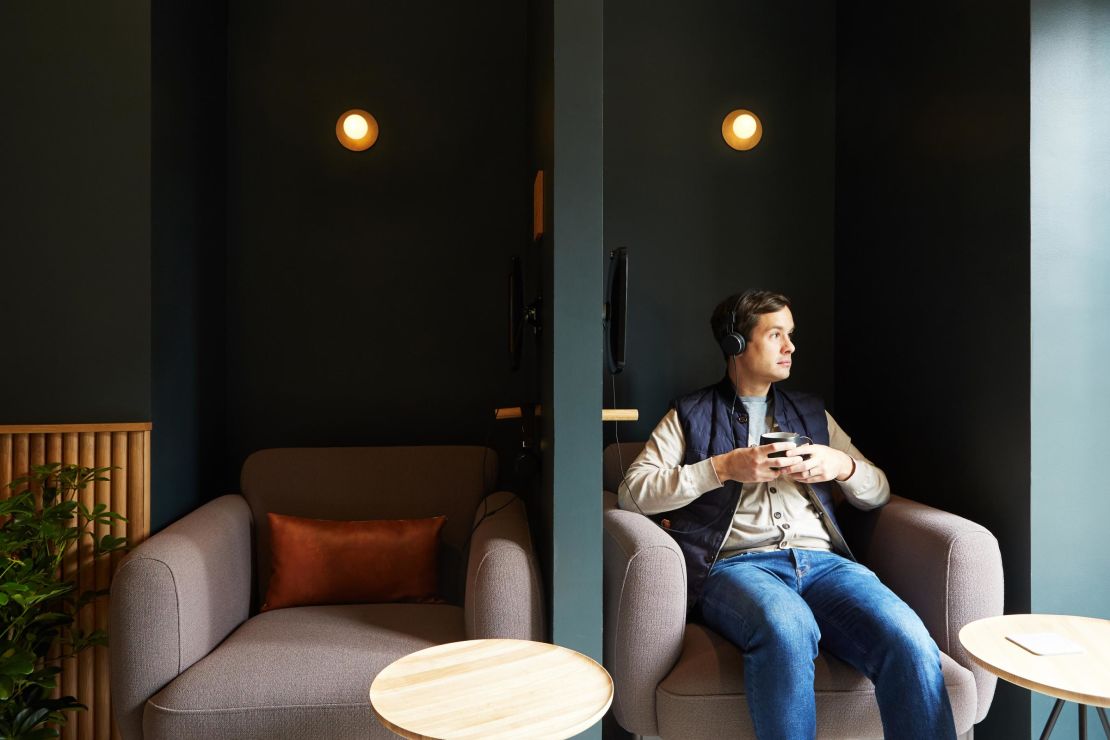With growing mental health concerns in the United States, the tech industry continues to search for a solution to get more people in front of therapists and modernize the experience.
Some investors are betting on a new mental health startup called Alma, a membership-based group for mental health professionals.
Alma launched in October 2018 with a brick and mortar location on New York’s Madison Avenue. Local mental health providers can apply for membership to use the space to treat patients, as well as form relationships with other therapists.
Providers — which include psychiatrists, psychologists and clinical social workers, as well as an acupuncturists — pay $165 per month, plus an hourly rate for booking private rooms, which are outfitted with precisely the same furniture and modern decor so patients benefit from the familiarity, no matter which room they meet in.
In exchange, Alma provides members with a suite of services, such as billing, scheduling, and tools for treating patients over video chat. The idea is to make it easier, and possibly more affordable, for them to perform tasks associated with running their own business. There’s also a communal kitchen and frequent events held in the space.
Alma has a “matchmaker” on staff who specializes in mental health counseling, and is devoted to pairing patients with professionals that suit their specific needs.
This week, founder and CEO Harry Ritter told CNN Business that Alma has raised $8 million in new funding towards its expansion. The round was led by venture capital firm Tusk Venture Partners, bringing Alma’s total funding to $12.5 million to date. Other investors include Sound Ventures, First Round Capital, Primary Ventures, and Box Group.
Alma is rolling out a community membership option for those who aren’t interested in using the physical space but want in on its other services. For now, it’s available to those in New York who may have their own offices but want access to Alma’s network, referrals, client matching, events and billing services. The cost for community membership is $145 per month.

In other words, Alma aims to build a “community” for providers both online and offline — a term that’s become something of a buzzword in the tech space, with companies like The Wing and WeWork raising millions to form “communities” for their members.
“Alma” in Aramaic and Latin means “world” and “soul,” according to Ritter, who said the company aims to draw “soulfulness down into the world.”
Ritter, who has law and medical degrees, previously served as Oscar Health’s vice president of care delivery, where he helped open the healthcare startup’s brick and mortar location in Brooklyn in 2016. Ritter said he created Alma to serve a need he saw in the mental health space: supporting mental health professionals – who are often running their own private practices – with community, and the tools needed to help them run their businesses.
“Our customer is the client-provider relationship,” Ritter said. “We respect the sanctity of two people needing to sit in a room and talk.”
While access to affordable mental health care is a significant barrier for many considering seeking help, Ritter said providers set their own fees, and can decide for themselves whether they accept insurance. The hope is that they’ll pass on any savings as a result of belonging to Alma to patients, Ritter added.
According to Jasmin Terrany, a therapist based in New York City who is not affiliated with Alma, a pain point facing young therapists is that “you’ve done all this training and you have all these skills, but getting clients is a whole other animal. You didn’t go and get your Master’s in business.”

(Ritter said that most of the therapists currently part of Alma’s network have between six and 15 years of experience.)
Terrany added that while she’s been practicing for more than a decade, anything that can make mental health professionals feel less alone and supported would be a good thing. “I think burnout is real.”
There’s a growing need to address mental health issues in the US. The most common mental illness in the US are anxiety disorders, which affect 40 million adults, according to the Anxiety and Depression Association of America. They’re highly treatable, but only about 37% of those suffering get treatment.
Technology is also making people more anxious, according to one recent study. It found that psychological well-being was higher when adolescents spent more time doing real-world activities, and lower when they were on their screens.
That can make the issue feel more personal to the tech world, which often touts its abilities to solve societal problems.
Tech investors have poured money into the space before, including in telemedicine startups devoted to mental health.

























